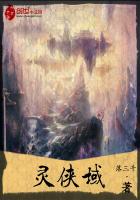'A paper was read by the secretary descriptive of a bay pony with one eye, which had been seen by the author standing in a butcher's cart at the corner of Newgate Market. The communication described the author of the paper as having, in the prosecution of a mercantile pursuit, betaken himself one Saturday morning last summer from Somers Town to Cheapside; in the course of which expedition he had beheld the extraordinary appearance above described. The pony had one distinct eye, and it had been pointed out to him by his friend Captain Blunderbore, of the Horse Marines, who assisted the author in his search, that whenever he winked this eye he whisked his tail (possibly to drive the flies off), but that he always winked and whisked at the same time. The animal was lean, spavined, and tottering; and the author proposed to constitute it of the family of FITFORDOGSMEATAURIOUS. It certainly did occur to him that there was no case on record of a pony with one clearly-defined and distinct organ of vision, winking and whisking at the same moment.
'MR. Q. J. SNUFFLETOFFLE had heard of a pony winking his eye, and likewise of a pony whisking his tail, but whether they were two ponies or the same pony he could not undertake positively to say.
At all events, he was acquainted with no authenticated instance of a simultaneous winking and whisking, and he really could not but doubt the existence of such a marvellous pony in opposition to all those natural laws by which ponies were governed. Referring, however, to the mere question of his one organ of vision, might he suggest the possibility of this pony having been literally half asleep at the time he was seen, and having closed only one eye.
'THE PRESIDENT observed that, whether the pony was half asleep or fast asleep, there could be no doubt that the association was wide awake, and therefore that they had better get the business over, and go to dinner. He had certainly never seen anything analogous to this pony, but he was not prepared to doubt its existence; for he had seen many queerer ponies in his time, though he did not pretend to have seen any more remarkable donkeys than the other gentlemen around him.
'PROFESSOR JOHN KETCH was then called upon to exhibit the skull of the late Mr. Greenacre, which he produced from a blue bag, remarking, on being invited to make any observations that occurred to him, "that he'd pound it as that 'ere 'spectable section had never seed a more gamerer cove nor he vos."'A most animated discussion upon this interesting relic ensued;and, some difference of opinion arising respecting the real character of the deceased gentleman, Mr. Blubb delivered a lecture upon the cranium before him, clearly showing that Mr. Greenacre possessed the organ of destructiveness to a most unusual extent, with a most remarkable development of the organ of carveativeness.
Sir Hookham Snivey was proceeding to combat this opinion, when Professor Ketch suddenly interrupted the proceedings by exclaiming, with great excitement of manner, "Walker!"'THE PRESIDENT begged to call the learned gentleman to order.
'PROFESSOR KETCH. - "Order be blowed! you've got the wrong un, Itell you. It ain't no 'ed at all; it's a coker-nut as my brother-in-law has been a-carvin', to hornament his new baked tatur-stall wots a-comin' down 'ere vile the 'sociation's in the town. Hand over, vill you?"'With these words, Professor Ketch hastily repossessed himself of the cocoa-nut, and drew forth the skull, in mistake for which he had exhibited it. A most interesting conversation ensued; but as there appeared some doubt ultimately whether the skull was Mr.
Greenacre's, or a hospital patient's, or a pauper's, or a man's, or a woman's, or a monkey's, no particular result was obtained.'
'I cannot,' says our talented correspondent in conclusion, 'Icannot close my account of these gigantic researches and sublime and noble triumphs without repeating a BON MOT of Professor Woodensconce's, which shows how the greatest minds may occasionally unbend when truth can be presented to listening ears, clothed in an attractive and playful form. I was standing by, when, after a week of feasting and feeding, that learned gentleman, accompanied by the whole body of wonderful men, entered the hall yesterday, where a sumptuous dinner was prepared; where the richest wines sparkled on the board, and fat bucks - propitiatory sacrifices to learning -sent forth their savoury odours. "Ah!" said Professor Woodensconce, rubbing his hands, "this is what we meet for; this is what inspires us; this is what keeps us together, and beckons us onward; this is the SPREAD of science, and a glorious spread it is."'













